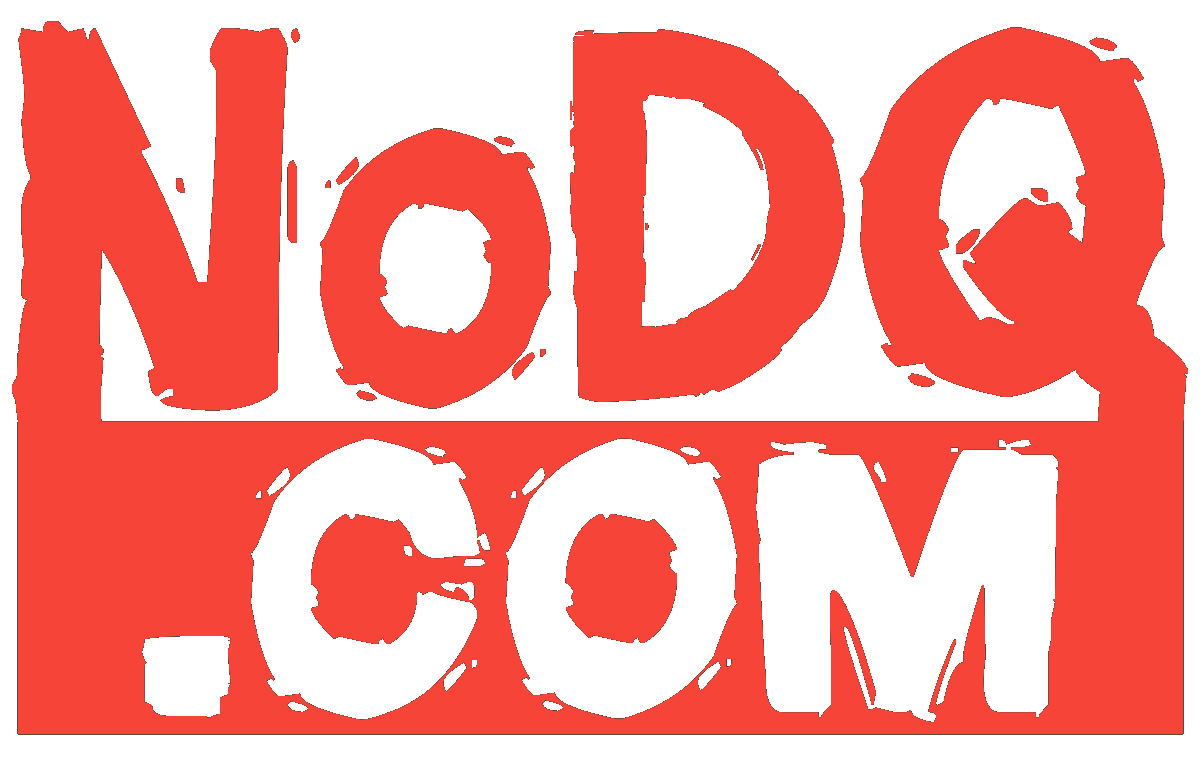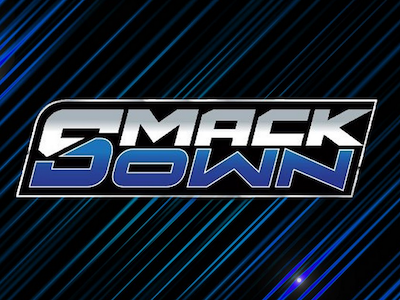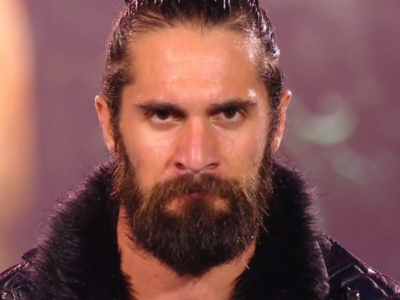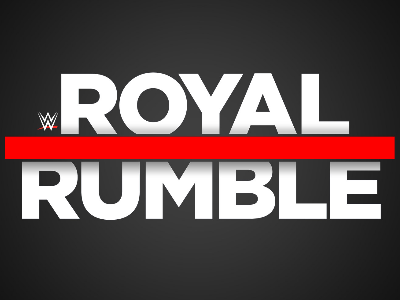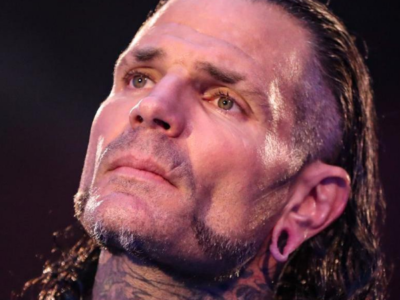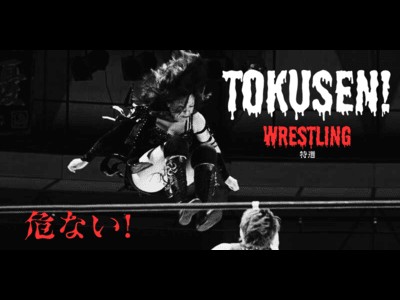Five Ways Wrestling Journalism Can Improve and Help the Industry

Japanese word of the week: Kaizen – 改善 – Improvement
Song of the week: Escuela Grind – Forced Collective Introspection
Fair UseSection 107 of the Copyright Act provides the statutory framework for determining whether something is a fair use and identifies certain types of uses—such as criticism, comment, news reporting, teaching, scholarship, and research—as examples of activities that may qualify as fair use.
Did you know?
-That there were two Ultimate Warriors?
-Randy Savage and Stephanie McMahon had an affair in the 90s?
-Vince Russo was sent to WCW by Vince McMahon to destroy it from within?
Of course you didn’t. Because these aren’t actually true; but are some of the historically whacky conspiracy theories in wresting history. How do we know they aren’t true? You can’t prove that something doesn’t exist, right?
Sure. In the same way you can’t prove to me that a giant flying spaghetti monster isn’t pulling the universal strings from above in a Matrix-like simulation.
This is where the concept of news and journalism comes into play. There are many different ways to tell a story, and depending on political leanings and biases, analysis of the story is subjective. But one part of the story should always remain consistent:
The facts. And these facts need to be established by legitimate evidence. Pro wrestling news must also follow these same principles. Unfortunately, often times, it does not. But there are ways to make it better and quite frankly, in my opinion, more legitimate.
Note: Those who run these sites are truly doing their best, so this critique comes in good faith, and of course, is just one opinion out of millions…
But before we dive in; some general knowledge. Lots of it…
The Purpose News Serves

“If it bleeds, it leads…”
If anyone thinks news outlets are just getting worse over time, just reference the above phrase. This is, unfortunately, not a new idea. This quote was coined by Newspaper mogul William Randolph Hearst in the late 1890s.
In short, it is the utilization of sensationalist headlines and stories to grab the attention of would-be readers. Most news sites, and even the majority of wrestling news sites, do this regularly. And for the most part, this is okay. Crafting creative headlines to pull readers in is an artform; assuming that the story that follows is factual and substantial.
One of the most important things a human being can do on this planet is to stay informed of the world around them via news outlets. However, learning how to sort through reliable and unreliable sources is a skill in itself. A skill that is often lacking these days, and extends from political news to even wrestling news.
But before we dive into the troubles modern wrestling journalism faces, we need to visit an age-old concept. “Who, what, why, when, where, and how?” Something we hopefully all learned in middle school, and how to view modern day information in a very fast-paced, overstimulated world.
Who, What, Why, When, Where, How?

Let’s look at an example: 2024 has been a crazy year for Japan so far. An earthquake, two major fires involving an airplane and a commerce building, and a stabbing on a densha (train). This is one of the most statistically safe countries in the world. What is happening over in my second home?
Anyway, back to the stabbing. On Wednesday, Jan. 3, a woman was arrested after allegedly stabbing four men on Tokyo’s Yamanote Line. The train had been running in between the JR Okachimachi and Akihabara stations. All four men survived with sustained injuries to their back and sides. The alleged assailant used a 15 centimeter knife for the attack.
With that being said, how do we know what happened actually happened?
-Video/Photo Evidence
-Victims
-Eyewitnesses
-Suspect/Attacker
-Police Report
Hard facts are fundamental to any news story. Facts that can be readily be pointed to as evidence of the narrative. Of course not every news story will contain the 5 W’s, but at the least, there will be direct evidence of the story’s narrative and truth.
Even if it’s just an interview, a news report on what is said in the interview counts as a story — as it is coming directly from the source of the story’s subject.
But with any story’s source, where is the narrative coming from? Is it opinion or is it fact?
Fact vs. Conjecture
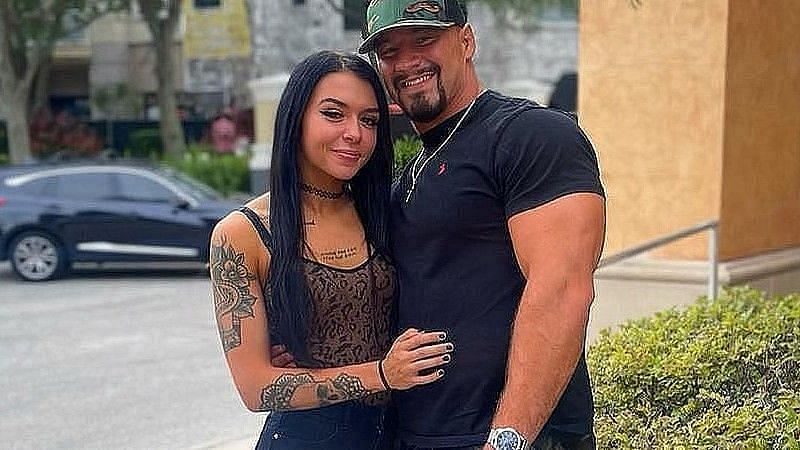
There is a difference between news based on inference and conjecture, and based on actual provable information.
If you head over to the Associated Press website you’ll find a plethora of stories that follow the 5 W’s rule, with evidence-based sourcing for each. Contrarily, if you head to a tabloid like TMZ, you’ll find a headline story (at the time of writing) of Selena Gomez allegedly gossiping with Taylor Swift about Kylie Jenner. There is no actual proof of this narrative beyond a low quality social media video and a “lip reader” guessing at what their conversation consisted of.
This is hyper-sensationalized journalism, and the world of wrestling can be no different.
An example of this is the recent “news” that Cora Jade and Bron Breakker have “broken up”. This was inferred by multiple “news” websites simply because they “unfollowed” each other on social media. However, the subjects of the story — Cora Jade and Bron Breakker, were not actually asked, nor have they confirmed a breakup.
In short; there’s no direct evidence that the story is even true. Much in the same way Charlotte and Andrade allegedly split last year (they didn’t). They’re all rumors. Author’s note: Why anyone should even care about this non-story in the first place is beyond me.
Now is it true that some rumors/speculations turn out to be proven as fact? Absolutely. Conjecture can be proven to be true at times. Otherwise, many rumors come from what is commonly known as an “anonymous source”. Rarely will journalists have a direct line to important heads like Paul Levesque or Tony Khan beyond a public interview.
A lot of wrestling news comes from these types of sources. Whether you should trust these sources or not deserves the next section…
Anonymous Sources

Anonymous sourcing is crucial to the credibility of a journalist.
Let’s take a look at the AP’s rules for using an anonymous source:
Under AP’s rules, material from anonymous sources may be used only if:
1. Material is information and not opinion or speculation, and is vital to the report.
2. Information is not available except under the conditions of anonymity imposed by the source.
3. The source is reliable, and in a position to have direct knowledge of the information.
Good journalists have to work for years to establish credible insider sources and to gain their trust. These are names who have been in the industry for quite some time, and have a history of reporting accurate news. Even with AP’s guidelines, wrestling journalists do their best, though still not always accurate at times.
In fact, a large chunk of what is reported from around the wrestling world comes from a handful of wrestling journalists that are putting in the work. Keep that in mind moving forward as we now dig into the beef of the article.
With that being said, here are five ways wrestling journalism can improve, both by fans and news websites.
#1 | Ditch the Tabloids

A “reporter” had to load up a video of Tony Khan, and pause it at this exact moment just to get this screenshot. This is an example of biased tabloid journalism. It’s disingenuous, and it hurts the industry.
Whenever you see an overly sensational headline, or an opinion in the headline itself, question the writer. When you see unflattering photos used at the top of an article, question the website as a whole. Unflattering photos are often used of the subject when trying to gain a reaction from a potential reader. This can be a red flag for legitimacy.
(This is often done on social media as well, both X and Facebook)
As Ryback (of all people) put it for these tabloid websites in a Sept. 6, 2023 video:
“They create a lot of outrageous headlines and manipulate misinformation to try to illicit negative hateful reactions from good-hearted wrestling fans.” – Ryback | RybackTV – YouTube
There are plenty of websites that look like they could be nothing more than tabloids, and in my personal opinion, fans need to start expecting better from them. If you come across a site like this, question everything you see and check the source material of the article. This is a level of editorial deception that doesn’t belong in the wrestling industry.
They can do better — all they have to do is put in a little effort. But if you’re fan, you can simply stop following these sensationalized tabloids.
#2 | Separate News & Opinion
![]()
There are a number of news websites that don’t have an opinion section, and that’s fine. However, there are a certain number of sites, even well-known sites, that seem to blur the lines between opinion and hard news. This even goes for outlets I follow and respect.
Separating news and opinion is such a simple thing to do. So if a website is inserting reviews and analysis within their main news feed, it’s a red flag to me.
NoDQ is one of the few sites that successfully separate news from opinion. Reviews and Opinions (like this one) are separated into its own section. It’s a small ask, but we see this blurring of the lines in so many sites now; even some reputable ones. Readers who aren’t as media literate may take an opinion for straight news, and this is something to be avoided.
These sites can do better.
#3 | Stop Listening to Blue Check Marks
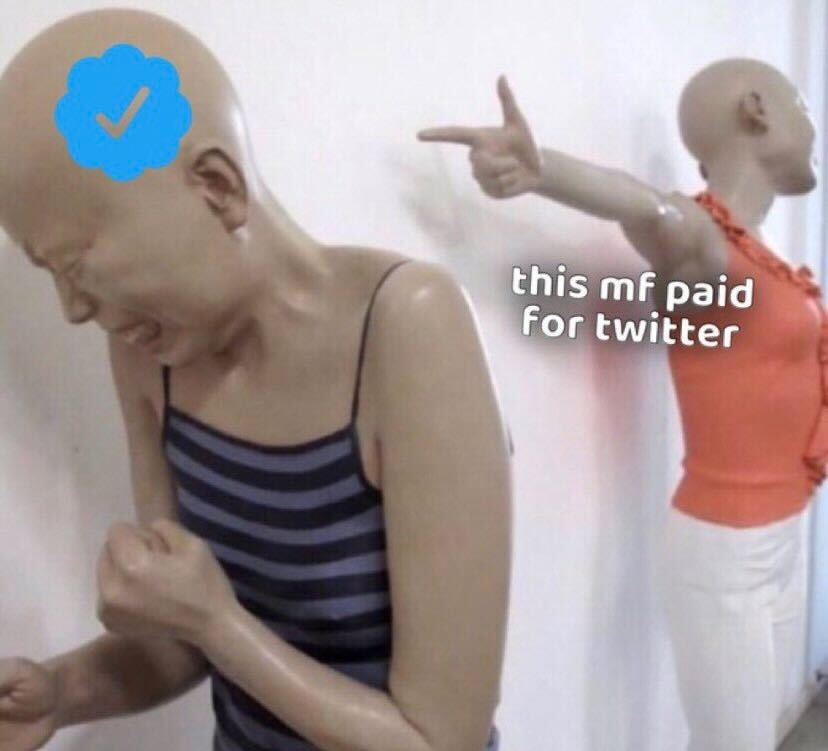
(this one is for wrestling fans…)
Unless you’re a news organization, a person that works for/runs said news organization, or even a larger social media influencer, your blue checkmark means nothing. Paying $8/month so your opinion gets boosted on a dying platform does not make you important or relevant to the wrestling industry.
And if your opinion is the source of toxicity or negative banter towards any company, be it WWE, AEW, or more — you’re literally a blue shitstain on the wrestling industry. You’re not helping, you’re hurting.
Yet some online fans see these blue check-marked influencers, sometimes passed off as sources of news, and actually believe their biased information. This is especially worse when tabloid wrestling news outlets actually report on false stories “broken” by blue checkmark accounts that have literally no experience in the wrestling industry other than being a biased fan.
Opinions are fine. Positive wrestling influencers are fine. Treating the opinions of toxic influencers as news and/or truth? That hurts the industry.
#4 | Stop Making Headlines out of Old Farts
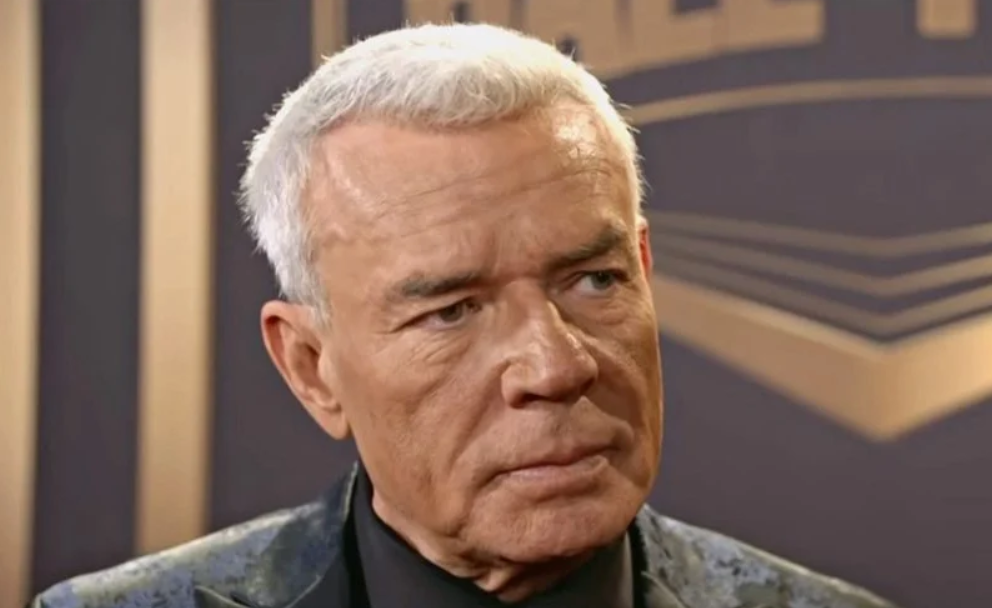
Literally every wrestling website does this, and I know why they do it: Quoting Eric Bischoff and other wrestling personalities, and passing it off as news. It’s a small ask, but I wish many websites would slow this process down.
The bottom line is this: Unless it’s a current talent or figurehead (like Levesque/Khan), an opinion should remain in the opinion section. Yet so many news sites wait until the next time a guy like Eric Bischoff predictably goes after Tony Khan (who he has an admitted bias against), quote whatever negative thing he said about him, and then pass it off as news.
And the cycle of online anti-AEW sentiment continues to influence gullible fans…
While it’s fine for discussion, the random opinion of a former wrestler/promoter is not really news. Cornette, Bully Ray, Disco, Konnan, Ryback, the list goes on…
Analysis and podcasts from former talent is great, but these are no longer workers within the industry. From my personal experience, their (often) outdated opinions have little relevance to the modern-day product other than blatant negativity. There are exceptions, but these far and few in between.
Many of these opinions can be taken out of context, passed off as “news”, and used to create divisiveness within the fan bases. While yes, the results of a weekly Stardom show may get less clicks than another “Bischoff bashes AEW” article, one is actually news, and the other is not.
We can do better.
#5 | Support Hard-Working Journalists

Much of what you see on news aggregation sites (like this one) come from only a handful of sources. Before I go into that, let me make this clear for readers:
News aggregator sites are great. This is when a website collects news from other websites to post on their own. Yahoo and Google News have dipped their toes into this practice, for example. Even major news organizations (CNN as an example) will source news from other news organizations with credit given.
One news site can’t do it all, so news aggregation sites can be important for an informed public.
Wrestling news takes part in this practice a lot. In fact, some of the most popular sites are simply news aggregation sites. However, this still comes with responsibility:
-Source the original material with credit given
-Don’t oversensationalize headlines for clickbait
Sourced journalists do the important work, gathered from years of trust from inside contacts. The best journalists will not use their personal opinion and platform for newsworthy conjecture, and not report based on rumors and innuendo.
I can’t list everyone, but do support those on the ground putting in the work:
Some historic greats in wrestling journalism:
-James Melby
-Bob Ryder
-Bill Apter
-Wade Keller
-Dave Meltzer
Some of the best in the industry right now:
-Sean Ross Sapp
-Denise Salcedo
-Mike Johnson
-Andrew Zarian
-Jason Powell
(feel free to add your own)
There is more I’m likely missing, but along with news aggregator sites, give them a follow and support their work and/or website. They more than deserve it.
The Truth About Wrestling Journalism
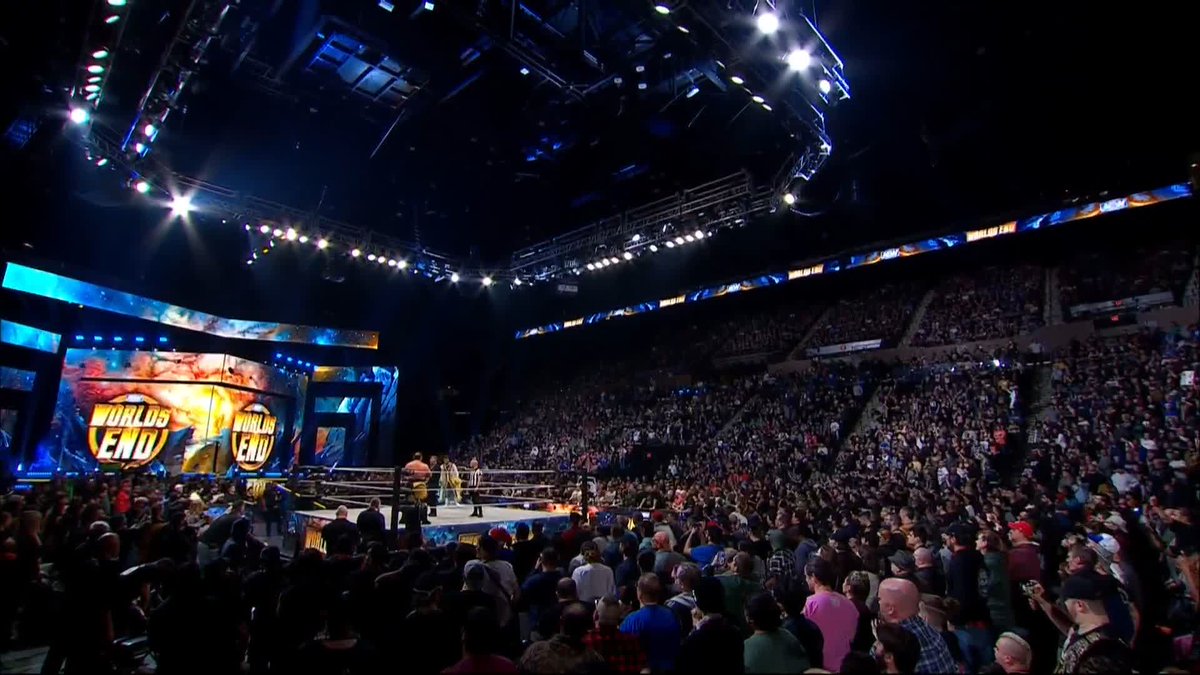
Does the industry even need wrestling journalism?
Not really.
Yet we’re all here, right? The important thing to remember is this: Letting wrestling journalism, be it a false tabloid or a legitimate publication, affect your view of wrestling itself, can hurt your fandom.
Wrestling news is what amounts to entertainment news. We love the craft, and we’re all very passionate about it. But let’s call it for what it is: Entertainment news about athletes who play fight in tight clothing.
But nothing that will ever likely be reported will change the world. Sure, blatant, negative, biased reporting may alter fan perceptions. Those perceptions may alter the performance of a company overall, and thus, affect actual livelihoods. But even in the grand scheme of life itself, it’s pretty small potatoes.
Never let wrestling journalism ruin your enjoyment of wrestling itself. If you do, there’s a chance you’re taking it a bit too seriously. But even with that, we all could use to change up certain practices in wrestling journalism to create a safer and positive environment for fans of all types to share in.
And as a former (non-wrestling) journalist writing this opinion article, let the predictable hate for this piece commence in the comment sections on social media and Disqus below…
-TKW
tokusenwrestling@yahoo.com
